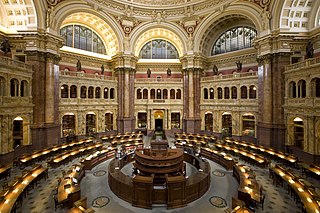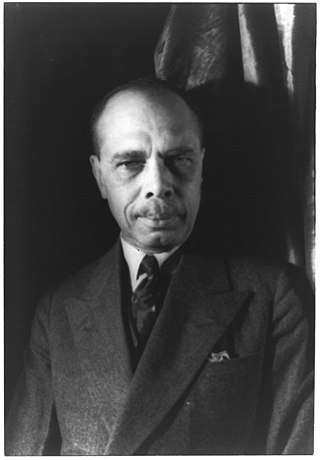Indian or Indians may refer to:

The Renaissance is a period in European history marking the transition from the Middle Ages to modernity and covering the 15th and 16th centuries, characterized by an effort to revive and surpass ideas and achievements of classical antiquity. It occurred after the Crisis of the Late Middle Ages and was associated with great social change. In addition to the standard periodization, proponents of a "long Renaissance" may put its beginning in the 14th century and its end in the 17th century.

Richard Nathaniel Wright was an American author of novels, short stories, poems, and non-fiction. Much of his literature concerns racial themes, especially related to the plight of African Americans during the late 19th to mid-20th centuries suffering discrimination and violence. Literary critics believe his work helped change race relations in the United States in the mid-20th century.

American literature is literature written or produced in the United States of America and in the colonies that preceded it. The American literary tradition thus is part of the broader tradition of English-language literature, but also includes literature of other traditions produced in the United States and in other immigrant languages. Furthermore, a rich tradition of oral storytelling exists amongst Native Americans.
Confederacy or confederate may refer to:

James Weldon Johnson was an American writer and civil rights activist. He was married to civil rights activist Grace Nail Johnson. Johnson was a leader of the National Association for the Advancement of Colored People (NAACP), where he started working in 1917. In 1920, he was chosen as executive secretary of the organization, effectively the operating officer. He served in that position from 1920 to 1930. Johnson established his reputation as a writer, and was known during the Harlem Renaissance for his poems, novel, and anthologies collecting both poems and spirituals of black culture. He wrote the lyrics for "Lift Every Voice and Sing", which later became known as the Negro National Anthem, the music being written by his younger brother, composer J. Rosamond Johnson.

American poetry refers to the poetry of the United States. It arose first as efforts by American colonists to add their voices to English poetry in the 17th century, well before the constitutional unification of the Thirteen Colonies. Most of the early colonists' work was similar to contemporary English models of poetic form, diction, and theme. However, in the 19th century, an American idiom began to emerge. By the later part of that century, poets like Walt Whitman were winning an enthusiastic audience abroad and had joined the English-language avant-garde.
The Renaissance was a period in European history in the 15th and 16th centuries, characterized by an effort to revive and surpass ideas and achievements of classical antiquity.

Southern United States literature consists of American literature written about the Southern United States or by writers from the region. Literature written about the American South first began during the colonial era, and developed significantly during and after the period of slavery in the United States. Traditional historiography of Southern United States literature emphasized a unifying history of the region; the significance of family in the South's culture, a sense of community and the role of the individual, justice, the dominance of Christianity and the positive and negative impacts of religion, racial tensions, social class and the usage of local dialects. However, in recent decades, the scholarship of the New Southern Studies has decentralized these conventional tropes in favor of a more geographically, politically, and ideologically expansive "South" or "Souths".
African American literature is the body of literature produced in the United States by writers of African descent. It begins with the works of such late 18th-century writers as Phillis Wheatley. Before the high point of enslaved people narratives, African-American literature was dominated by autobiographical spiritual narratives. The genre known as slave narratives in the 19th century were accounts by people who had generally escaped from slavery, about their journeys to freedom and ways they claimed their lives. The Harlem Renaissance of the 1920s was a great period of flowering in literature and the arts, influenced both by writers who came North in the Great Migration and those who were immigrants from Jamaica and other Caribbean islands. African American writers have been recognized by the highest awards, including the Nobel Prize given to Toni Morrison in 1993. Among the themes and issues explored in this literature are the role of African Americans within the larger American society, African-American culture, racism, slavery, and social equality. African-American writing has tended to incorporate oral forms, such as spirituals, sermons, gospel music, blues, or rap.
Native Americans or Native American may refer to:
The Native American Renaissance is a term originally coined by critic Kenneth Lincoln in the 1983 book Native American Renaissance to categorise the significant increase in production of literary works by Native Americans in the United States in the late 1960s and onwards. A. Robert Lee and Alan Velie note that the book's title "quickly gained currency as a term to describe the efflorescence on literary works that followed the publication of N. Scott Momaday's House Made of Dawn in 1968". Momaday's novel garnered critical acclaim, including the Pulitzer Prize for Fiction in 1969.
Nationality words link to articles with information on the nation's poetry or literature.

The Harlem Renaissance was an intellectual and cultural revival of African-American music, dance, art, fashion, literature, theater, politics and scholarship centered in Harlem, Manhattan, New York City, spanning the 1920s and 1930s. At the time, it was known as the "New Negro Movement", named after The New Negro, a 1925 anthology edited by Alain Locke. The movement also included the new African-American cultural expressions across the urban areas in the Northeast and Midwest United States affected by a renewed militancy in the general struggle for civil rights, combined with the Great Migration of African-American workers fleeing the racist conditions of the Jim Crow Deep South, as Harlem was the final destination of the largest number of those who migrated north.
Latino or Latinos refers to:

Chicago literature is writing, primarily by writers born or living in Chicago, that reflects the culture of the city.
American(s) may refer to:
Native American literature is literature, both oral and written, produced by Native Americans in what is now the United States, from pre-Columbian times through to today. Famous authors include N. Scott Momaday, Leslie Marmon Silko, Simon Ortiz, Louise Erdrich, Gerald Vizenor, Joy Harjo, Sherman Alexie, D'Arcy McNickle, James Welch, Charles Eastman, Mourning Dove, Zitkala-Sa, John Rollin Ridge, Lynn Riggs, Diane Glancy, Hanay Geiogamah, William Apess, Samson Occom, et al. Importantly, it is not "a" literature, but a set of literatures, since every tribe has its own cultural traditions. Since the 1960s, it has also become a significant field of literary studies, with academic journals, departments, and conferences devoted to the subject.







